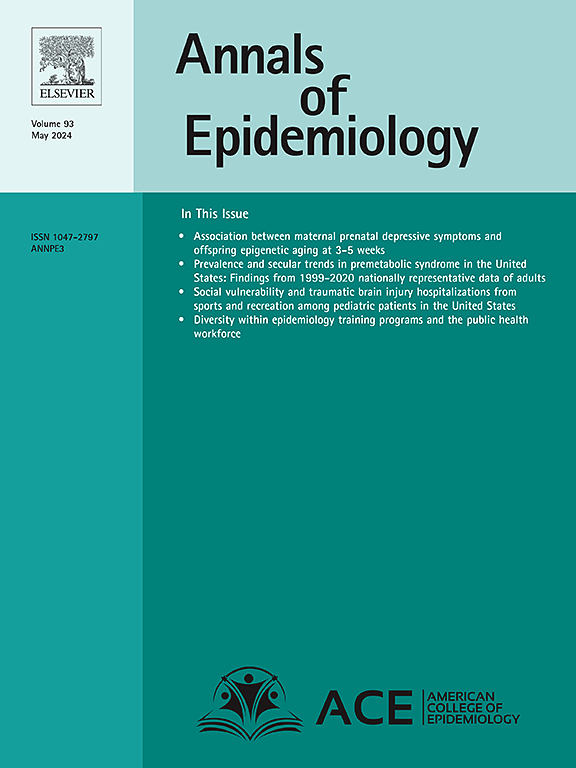背景问题:用于关于歧视和健康的人口健康研究的社会政治关切措施的有效性和可靠性
IF 3
3区 医学
Q1 PUBLIC, ENVIRONMENTAL & OCCUPATIONAL HEALTH
引用次数: 0
摘要
社会政治背景塑造了歧视和健康的经历,但有限的研究包括社会政治关注指标,作为暴露、混杂或影响修饰。目的评估社会政治问题自我报告测量的心理测量特性。方法:我们根据盖洛普民意调查的问题,对699名年龄在25-64岁的美国出生的成年人进行了抽样调查,该样本于2020年5月至2022年7月期间从马萨诸塞州波士顿的三个社区卫生中心招募。我们采用探索性因子分析(EFA)来评估结构效度,并采用多组验证性因子分析(CFA)来评估年龄、种族、性别形态、性别认同、性取向和体重等6种歧视的组间测量不变性。结果项目间相关系数为0.04 ~ 0.50(36% %相关系数≥0.40),具有较高的Cronbach’s alpha值(0.87)。EFA揭示了三个潜在因素,它们都与单一结构有关。多组CFA表明,6个歧视组中有5个组具有构型和度量不变性(对于年龄,只有构型不变性)。自我报告的歧视经历与对每一种歧视的社会政治关注呈正相关。结论社会政治关注量表是一种可靠的量表,具有较强的结构效度,对未来歧视与健康的研究具有潜在的指导意义。本文章由计算机程序翻译,如有差异,请以英文原文为准。
Context matters: Validity and reliability of a sociopolitical concerns measure for use in population health research on discrimination and health
Background
Sociopolitical contexts shape both experiences of discrimination and health, yet limited research has included sociopolitical concerns metrics, as an exposure, confounder, or effect modifier.
Objective
To assess psychometric properties of a self-report measure of sociopolitical concerns.
Methods
We assessed a 15-item sociopolitical concerns scale, based on Gallup poll questions, in a cross-sectional sample of 699 US-born adults ages 25–64 years recruited from three community health centers in Boston, Massachusetts, between May 2020-July 2022. We conducted exploratory factor analysis (EFA) to assess construct validity and multi-group confirmatory factor analysis (CFA) to assess measurement invariance across groups for 6 types of discrimination, involving age, racialized group, gender modality, gender identity, sexual orientation, and weight.
Results
Inter-item correlations ranged from 0.04 to 0.50 (36 % of correlations were 0.40), with a high Cronbach’s alpha (0.87). EFA revealed three underlying factors, all related to a single construct. Multi-group CFA indicated that configural and metric invariance held for 5 of the 6 discrimination groups (for age, only configural invariance held). Self-reported experiences of discrimination were positively associated with sociopolitical concerns for each type of discrimination.
Conclusion
The sociopolitical concerns scale is a reliable measure with strong construct validity, potentially useful for future research on discrimination and health.
求助全文
通过发布文献求助,成功后即可免费获取论文全文。
去求助
来源期刊

Annals of Epidemiology
医学-公共卫生、环境卫生与职业卫生
CiteScore
7.40
自引率
1.80%
发文量
207
审稿时长
59 days
期刊介绍:
The journal emphasizes the application of epidemiologic methods to issues that affect the distribution and determinants of human illness in diverse contexts. Its primary focus is on chronic and acute conditions of diverse etiologies and of major importance to clinical medicine, public health, and health care delivery.
 求助内容:
求助内容: 应助结果提醒方式:
应助结果提醒方式:


